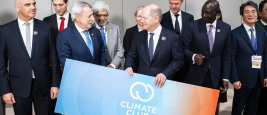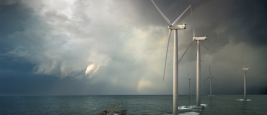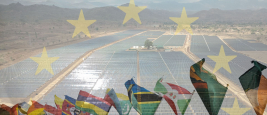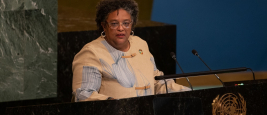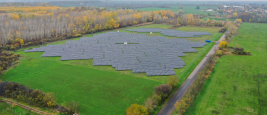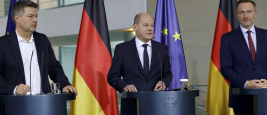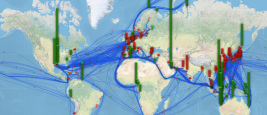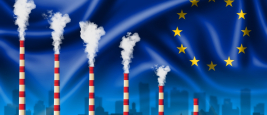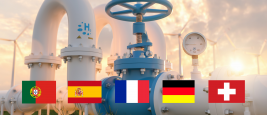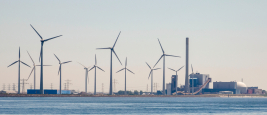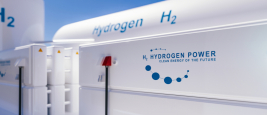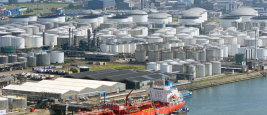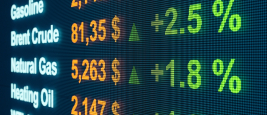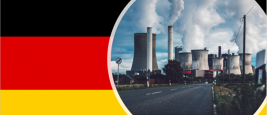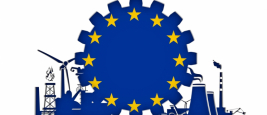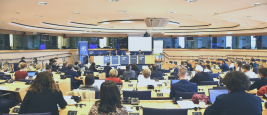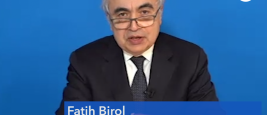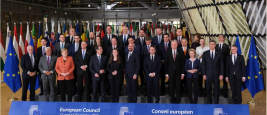While solar photovoltaic (PV) installations are booming in Europe (and in other parts of the world), the local industry is closing down. Over the past two years, the European installed solar PV capacity has been multiplied by two. On the other hand, the remaining European manufacturers of...

European energy policy
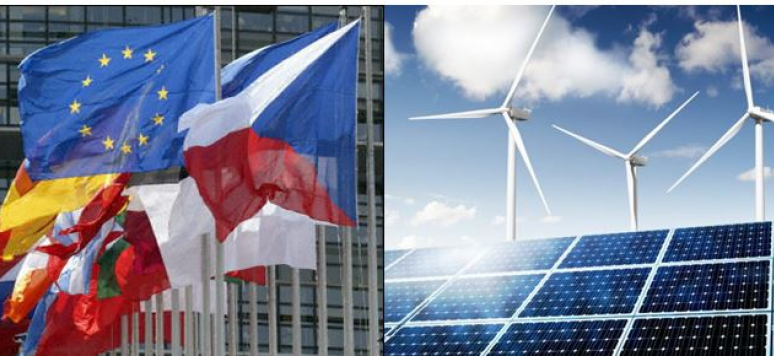
The European energy policy research axis whithin Ifri's Center for Energy & Climate examines the major policy regulatory issues of the European internal and external energy policies, with a focus on the integration of energy markets and the deployment of low-carbon technologies.
Director of Ifri’s Center for Energy & Climate
...Research Fellow, Head of European energy and climate policies, Center for Energy & Climate
...Research Fellow, Center for Energy & Climate
...Senior Advisor, Center for Energy & Climate
Associate Research Fellow, Center for Energy & Climate
...Associate Research Fellow, Center for Energy & Climate
...With the war in Ukraine, Germany’s “traffic light” coalition government has had to adapt its climate policy to the upheavals caused by this war, which has turned its economic, energy, and military model upside down. Against a backdrop of high energy costs and increasing calls for reshoring in...
Electric vehicles (EVs) are better for the climate – even in worst-case scenarios. Across its life cycle, a typical European electric car produces less greenhouse gas (GHG) and air pollutants or noise than its petrol or diesel equivalent. Emissions are usually higher in the production phase,...
The European Green Deal has not been planned for the current extraordinarily deteriorated internal and external environment. Russia’s war in Ukraine, higher interest rates, inflation, strained public finances, weakened value chains, and lack of crucial skills pose unprecedented challenges....
The UN climate conference in Dubai faces a moment of troubled geopolitical agenda lowering the focus on the climate emergency, but natural ecosystems will not wait for human decisions. A challenging test for the survival of diplomacy.
“Humanity has opened the gates of hell”, said the UN Secretary General Antonio Guterres during the Climate Ambition Summit, in New York, in September 2023, three months before COP28. The sense of urgency that he conveyed seems shared across the international community.
The deployment at scale of electric mobility in France and in Europe withholds significant industrial, societal, geopolitical, and financial challenges, against the backdrop of strategic dependencies along the value chain of the electric vehicle (EV).
North-South tensions are exacerbated at a time of unprecedented turmoil for both Europeans and Africans. European polycrises (geopolitical, energy-related and economic) echo the systematic vulnerability of Africans, which is reinforced by external shocks.
Finance is arguably the most sensitive climate negotiation topic. Different studies have shown that rich countries emit the majority of greenhouse gas (GHG) emissions, while the climate footprint of the poorest countries is much more limited.
Russia’s war in Ukraine, and the brutal decoupling from Russian fossil fuels, is a game changer for the Central and Eastern Europe region which was still heavily dependent on Russia for its energy supply.
Germany’s Ampel coalition and the energy crises: any Zeitenwende or more of the same? Visioconférence
Germany managed to overcome the brutal energy decoupling from Russia, and the energy price crises, and greenhouse gas emissions are in decrease. Europe’s largest economy now needs to cope with the Constitutional court budget spending limitations, internal coalition struggles, competitiveness...
How can the EU Green Deal adapt to a brutal world? Ifri's Center for Energy & Climate Breakfast-Debate in Brussels
The European Union's energy transition has historically never been so advanced, yet never so vulnerable. Over the last four years, the European Union (EU) has experienced significant growth in renewable energy capacities, Electric Vehicle (EV), and heat pump adoption. Progress has...
The future of EU industrial policy: will it be “Made in Europe”? Webinaire
The United States of America has deployed the powerful tool of the Inflation Reduction Act to stimulate decarbonization investments, support all low carbon technologies and prioritize homemade technological leadership.
Post crises hydrogen plans in EU Member States and building blocks for a Portugal-Spain-France-Germany H2 corridor Conférence
Germany’s transition to climate neutrality will require large volumes of low carbon hydrogen and byproducts (H2). A large part will have to be imported, and German companies plan to play a key role across significant portions of the value chains with the backing of the government.
Protection of Biodiversity – Perspectives after COP15 Webinar
At COP15 on Biodiversity in Montreal last month, a historical deal was reached, which includes the goal of protecting 30% of the world’s land and water ecosystems, mobilizing USD 200 billion, and moving away from environmentally harmful investments.
The EU’s Power System by 2030: Navigating the Crisis and Keeping the Decarbonization Cap Ifri Seminars
The combination of the climate crisis and Russia’s war in Ukraine makes the case for a much faster transition to a fully decarbonized power system.
REPowerEU: How to Deliver on the Hydrogen Accelerator? Ifri Green Deal Virtual Lunch Series
The first REPowerEU proposals aimed at reducing Russian gas demand, boosting resilience and decarbonization, call for a hydrogen accelerator with 10 Mt of additional hydrogen imports by 2030 and 5 Mt of additional domestic production, compared to 10 Mt of domestic production planned in the Fit...
Europe’s energy system facing multiple shocks: market adjustments and policy responses Ifri Green Deal Virtual Lunch Series
Russia’s war with Ukraine has multiple spillover effects on Europe’s energy systems which face multiple threats adding up to systemic weaknesses and challenges.
Europe’s Gas Squeeze: Back to Normal in 2022? Ifri Green Deal Virtual Lunch Series
While Russia and the United States have enjoyed record high export prices for their gas and competitive supplies at home, Europe, alongside other importers, has suffered from record gas bills and physical supply restrictions.
Germany's Energy and Climate Policies after the Parliamentary Elections
Germany's September Parliamentary elections opened the way for coalition negotiations that may last until December. Yet first hints at directions and red lines in energy and climate policy can be identified as the country must prepare for an accelerated decarbonisation.
The two nations have opposing ideas about atomic energy, threatening the EU’s transition away from fossil fuels.
Argument that reactors are expensive "does not hold any more", conference hears. Nuclear plants will be needed for the future stability of Europe’s grid, Marc-Antoine Eyl-Mazzega said.
The recent energy crisis has highlighted our economies' dependence on energy resources. With fossil fuels becoming less available, and a necessary transition to more decarbonised alternatives, could tomorrow's energy not become more expensive and less certain in...
Despite some shouting and hiccups here and there, the European Green Deal has become the common framework for any discussion on energy and climate in Europe.
The European Green Deal (EGD) is the single most defining policy initiative of the Von der Leyen Commission. Since its publication in December 2019, it has become the European Union’s (EU) new raison d’être.
Some of Europe’s poorest countries and communities would be hardest hit by disruptions of Russian energy supplies. With a difficult winter ahead, Europe’s ability to redistribute costs equitably and to shield the most vulnerable will determine whether it can preserve social cohesion and the...
Replay from Ifri's conference at the European Parliament in Brussels (October 11, 2022). The combination of the climate crisis and Russia’s war in Ukraine makes the case for a much faster transition to a fully decarbonized power system.
Fatih Birol, Executive Director of the International Energy Agency (IEA), makes 5 key recommendations for the future of French energy & climate policies to foster energy security and achieve climate objectives:
Following the 18 May Franco-German initiative and ahead of next week's critical presentation (27 May) by the European Commission of the European recovery plan aligned with the carbon neutrality objective, Marc-Antoine Eyl-Mazzega, Director of Ifri's Center for Energy &...
The price of CO2 credits on Europe’s emissions trading scheme needs to rise to around €50 per tonne in order to drive the long-term development of Europe’s biomethane industry, says Marc-Antoine Eyl-Mazzega, a French researcher.










